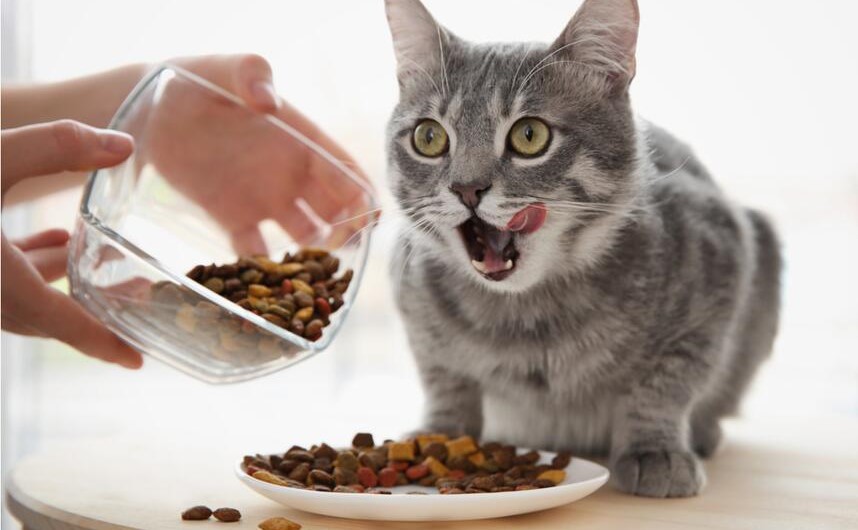
Cats, those charming and enigmatic feline companions, have captivated people for centuries with their grace and mystery. Throughout history, they have been regarded as independent and cunning animals, and their diet arouses special interest among animal lovers. In this article, we’ll explore in depth what cats eat, from their natural preferences to the most suitable food choices for our beloved pets.
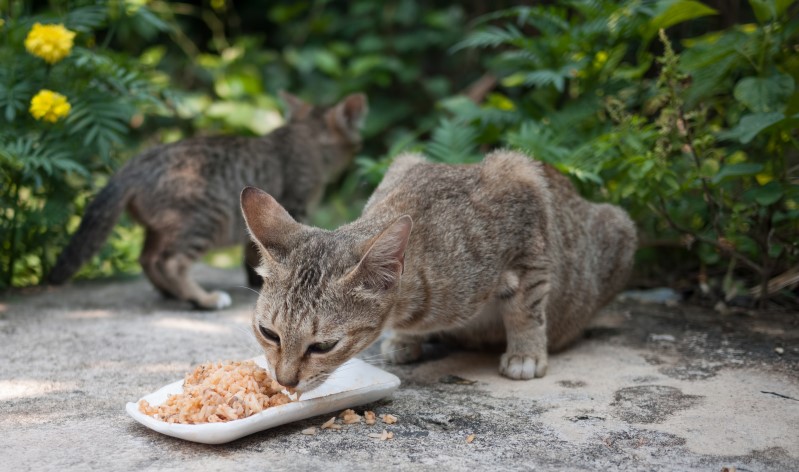
The Feline Diet: What Can Cats Eat?
Cats are naturally obligate carnivores, which means their diet should consist primarily of meat to meet their nutritional needs. A balanced diet for cats should include high-quality protein, healthy fats, essential vitamins and minerals. Proper nutrition is critical to your long-term health and well-being.
Feline Food Preferences: What They Like to Eat Most
Cats are known for their demanding taste buds. They love the variety and texture in their food. Wet foods, such as pâtés and pieces of meat, are often irresistible due to their moisture content and intense flavor. In addition, cats enjoy protein-rich foods, such as chicken, turkey, fish, and beef.
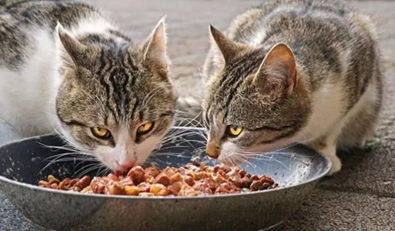
The Secrets of the Natural Diet of Cats
Historically, cat ancestors were solitary hunters who relied on hunting to survive. This influences their current diet, as they still retain many of the preferences of their ancestors. Lean meat and internal organs are key elements in cats’ natural diet, providing them with the essential nutrients they need.
Suitable Cat Foods: A Reference Table
To ensure proper nutrition, it is essential to know safe food for cats. Here is a table of recommended foods:
| Permitted Foods | Foods to Avoid |
|---|---|
| Cooked chicken | Onion and garlic |
| Cooked turkey | Chocolate |
| Cooked fish | Grapes and raisins |
| Cooked beef | Dairy products |
| Cooked chicken or beef liver | Dog food |
| Boiled eggs | High-fat foods |
The Challenges of Stray Cats: Their Adaptation to Available Food
Stray cats often have to survive on what they can find in their environment. Their diet usually consists of rodents, birds and human food scraps. However, this diet can be insufficient in terms of nutrition, leading to long-term health problems.
A Kitten’s First Days: What Baby Cats Eat
Newborn kittens are completely dependent on mother’s milk during the first weeks of life. If it is not possible to obtain breast milk, milk substitutes for kittens are an option. As they grow, solid foods are gradually introduced, such as porridge specially formulated for kittens.
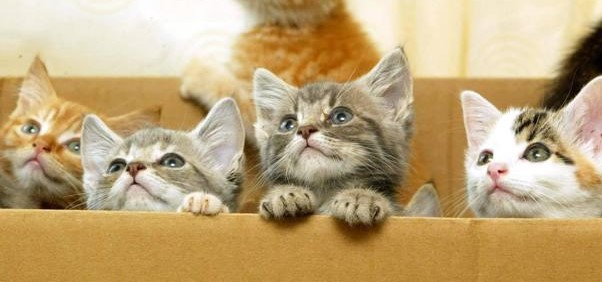
No Food for My Cat: Emergency Alternatives
In situations where cat food is not available, it is crucial to take steps to feed your pet. Cooked chicken or turkey without seasonings are temporary options. However, it is critical to provide a balanced diet as soon as possible.
Feeding Frequency: How Many Times Should Cats Eat?
In general, adult cats should be fed two to three times a day. However, the exact amount of food depends on factors such as your age, activity level, and overall health. Consulting with a veterinarian can help determine the right amount.
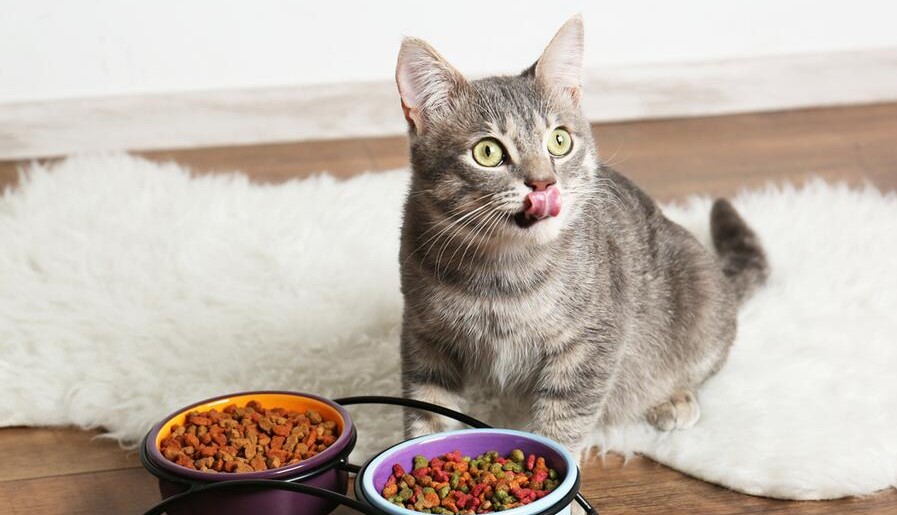
Time Without Food: How Long Can a Cat Take?
Unlike dogs, cats are more likely to fast for short periods. However, it is not advisable to let a cat go more than 24 hours without eating, as this can lead to liver problems. If a cat refuses food for an extended period, it is vital to seek veterinary attention.
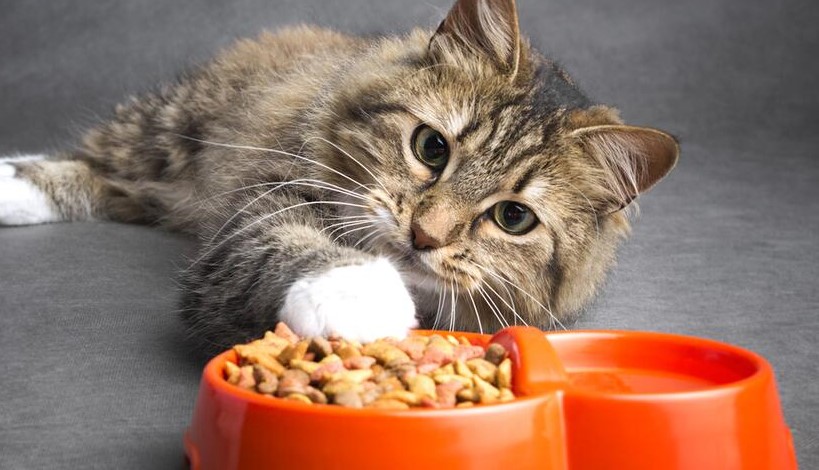
What to Avoid: Dangerous Foods for Cats
There are certain foods that should be kept out of reach of cats as they can be harmful and even deadly. Some examples include onion, garlic, chocolate, grapes, raisins, and dairy products. These foods can cause anything from digestive discomfort to serious poisoning.
Staying Hydrated: Drinks Right for Cats
Fresh, clean water is essential for the health of cats. Although milk is popular in popular culture, many cats are lactose intolerant and milk can cause digestive problems. Instead, it is better to provide drinking water at all times.
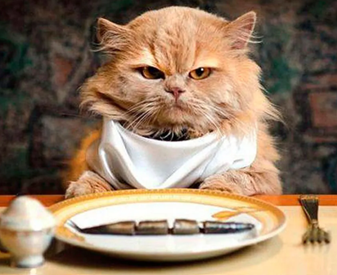
What do Cats with Food Allergies Eat? Taking Care of Your Special Diet
Like humans, cats can also develop food allergies. Symptoms include itching, vomiting and diarrhea. In cases of allergies, work with a veterinarian should be done to identify the allergen and adjust the cat’s diet accordingly.
Essential Nutrients in the Feline Diet
A balanced diet for cats should contain certain key nutrients to promote their health. These include high-quality protein, amino acids, omega-3 fatty acids, taurine, vitamins A and D, and minerals such as calcium, phosphorus, and zinc. Lack of these nutrients can lead to long-term health problems.
In conclusion, a cat’s diet is a crucial aspect of its overall well-being. As responsible beings in charge of these adorable pets, it’s critical to understand what cats eat, from their natural preferences to safe and nutritious choices. Providing them with a proper and balanced diet will ensure that our feline friends live a long and healthy life.
For more articles like this, click here.
